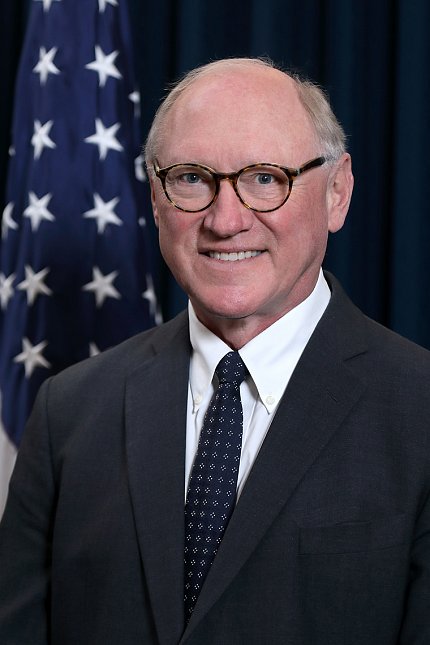DPCPSI’s Anderson Retires

Dr. James M. Anderson, NIH deputy director for program coordination, planning and strategic initiatives (DPCPSI), retired June 30, after nearly 12 years of service.
When recently asked during a meeting of the DPCPSI Mentoring and Career Guidance Program what he would consider to be his best career decision, Anderson said taking the DPCPSI post.
“There are multiple reasons, including that the position enables me to apply all of my previous training, experience and skills in conducting research, providing clinical care, and managing an academic department to my work at NIH,” he said. “I would add that the opportunity to work with the exceptionally capable and dedicated staff and leadership at the NIH is another reason why moving to NIH was a great career move.”
“NIH was fortunate to recruit Jim to NIH in 2010,” said NIH acting director Dr. Lawrence Tabak. “His wide-ranging experience in clinical medicine and academic research and administration made him the ideal candidate for the job. Jim helped form the division and the offices within to become central NIH-wide coordinators for many thematic areas of science, including the NIH Common Fund.”
Under Anderson’s stewardship, DPCPSI grew from seven offices in 2010 to 14 offices that coordinate NIH-wide research and activities related to HIV/AIDS, research infrastructure, behavioral and social sciences, disease prevention, dietary supplements and nutrition as well as research to focus on the health of women, sexual and gender minorities, and American Indians and Alaska Natives.
In addition, Anderson brought together NIH-wide planning and evaluation functions in DPCPSI and prioritized development of new approaches for portfolio analysis and NIH-wide leadership in data science.
“It has been gratifying to oversee the development of the division into a highly effective leader and coordinator for multiple areas of cross-cutting science,” he said.
As a senior investigator in the NHLBI intramural program, Anderson continued his research focused on the molecular basis for defining paracellular transport and its implications for disease.
In recognition of his research and lifetime achievement, he received the Walter B. Cannon Award from the American Physiological Society–the highest research honor awarded by the organization–in 2014. Post-retirement, he will continue to serve as an editor for Physiology.
Prior to coming to the NIH in 2010, Anderson served as professor and chair of cell and molecular physiology at the University of North Carolina-Chapel Hill. He was a professor of internal medicine and cell biology and chief of the digestive diseases section at Yale School of Medicine until 2002.
After retirement, Anderson looks forward to spending more time with his wife and family and having the flexibility and time to pursue new interests.
